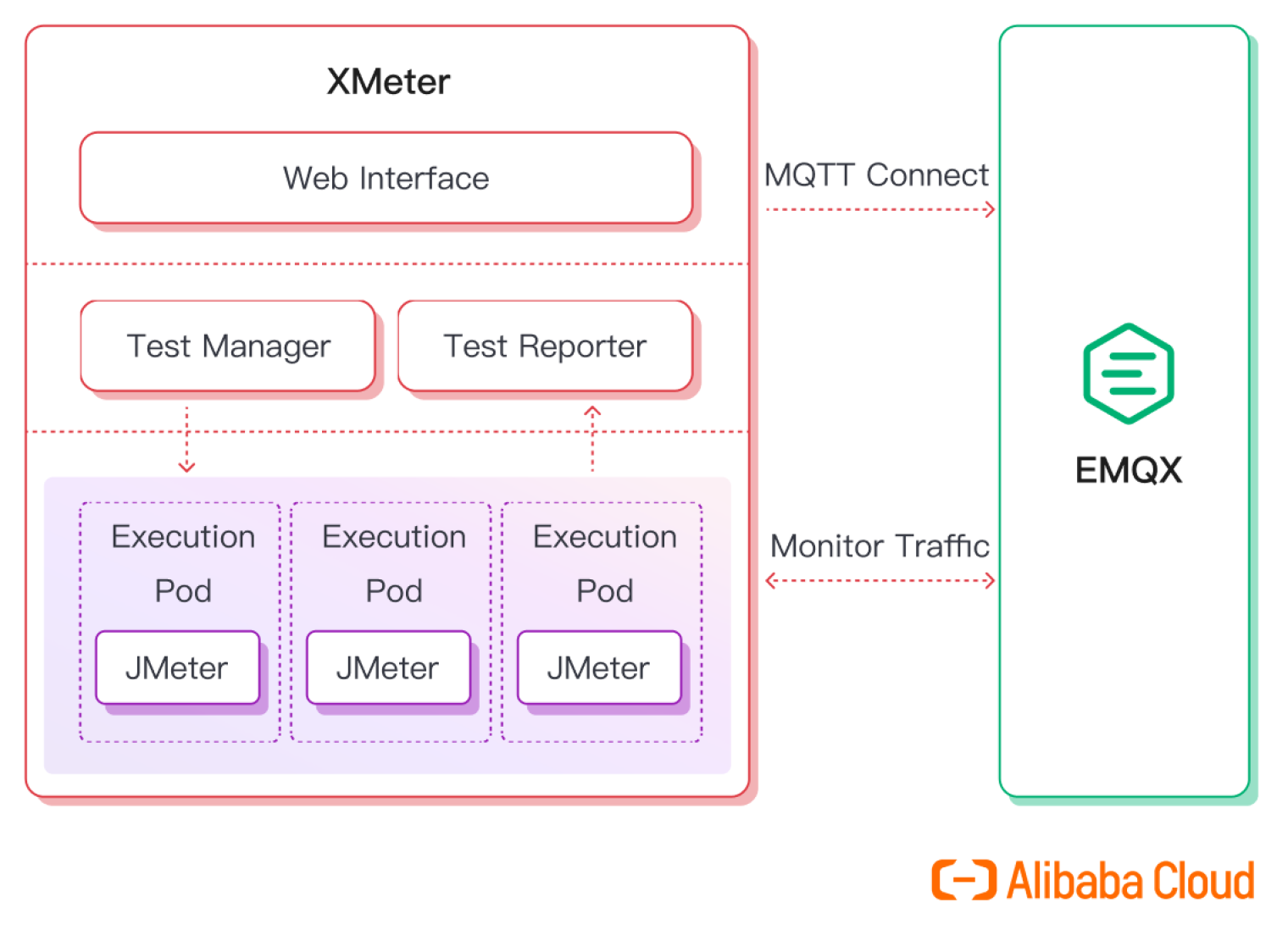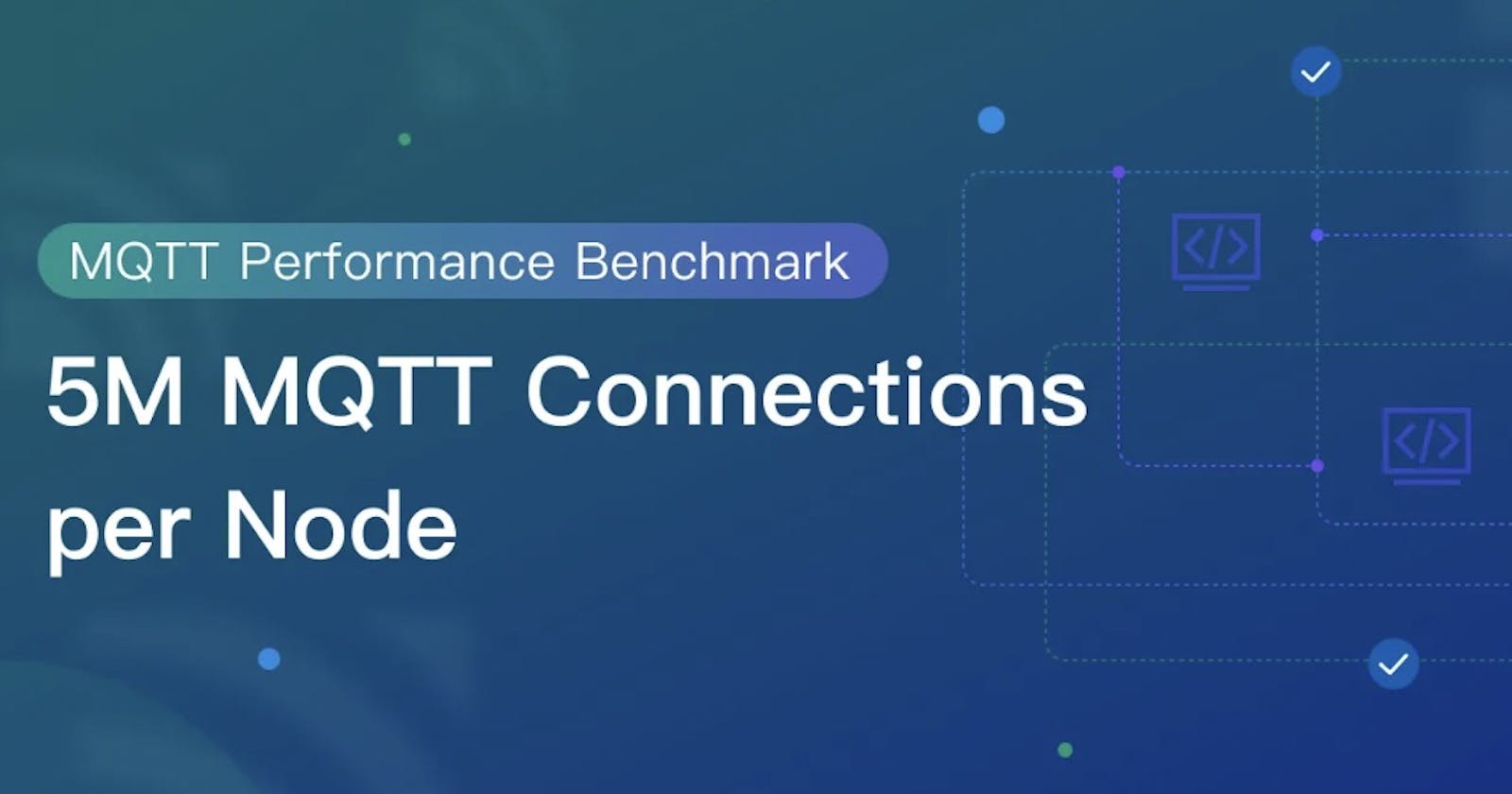
In this post, we provide the benchmarking result of EMQX connection - a single node EMQX processes 5M concurrent connections.
Test Scenario
This benchmark testing simulates 5,000,000 MQTT clients connecting to EMQX, with a connection rate of 5,000 per second.
Concurrent connections: 5,000,000
Connection rate: 5000/s
Authentication: no
Keep alive: 300s
Clean session: true
Testbed
The test environment is configured on Alibaba Cloud, and all virtual machines are within a VPC (virtual private cloud) subnet.
Machine Details:
| Service | Deployment | Version | OS | CPU | Memory | Cloud Host model |
| EMQX | single node | 5.0.21 | RHEL 8.5 | 64C | 128G | hfc6.16xlarge |
Test Tool
XMeter is used in this benchmark test to simulate MQTT clients. XMeter is built on top of JMeter but with enhanced scalability and more capabilities. It provides comprehensive and real-time test reports during the test. Additionally, its built-in monitoring tools are used to track the resource usage of the EMQX machines.
XMeter provides a private deployment version (on-premise) and a public cloud SaaS version. A private XMeter is deployed in the same VPC as the EMQX in this testing.

System Tuning
Please refer to EMQX Doc for the Linux Kernel tuning.
Benchmark Results
EMQX dashboard illustrates that over 5M concurrent connections are achieved, and the connection is rather stable throughout the 30-minute’s test.


Metrics
| Average of connect response time | 2.93ms |
| Average of CPU usage | 14% |
| Max of CPU usage | 40% |
| Average of memory usage after all clients are connected | 48.7GB |
| Max of memory usage | 51.4GB |
Wrapping up
This benchmark report demonstrates the robust concurrent connectivity performance of EMQX in a single-node deployment. It shows that EMQX can help users build larger scale IoT applications while using fewer machines, helping to reduce your total cost of ownership.
